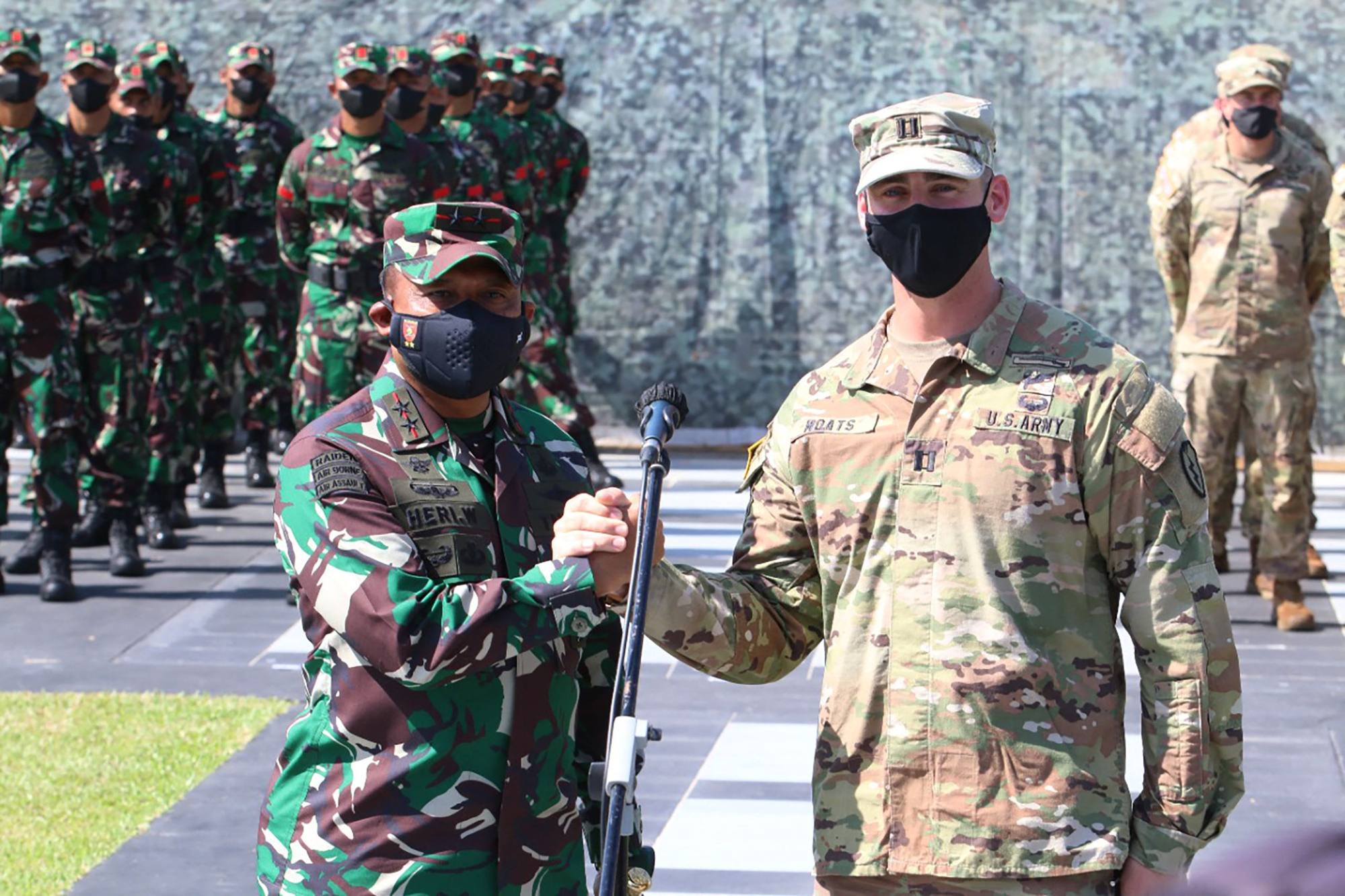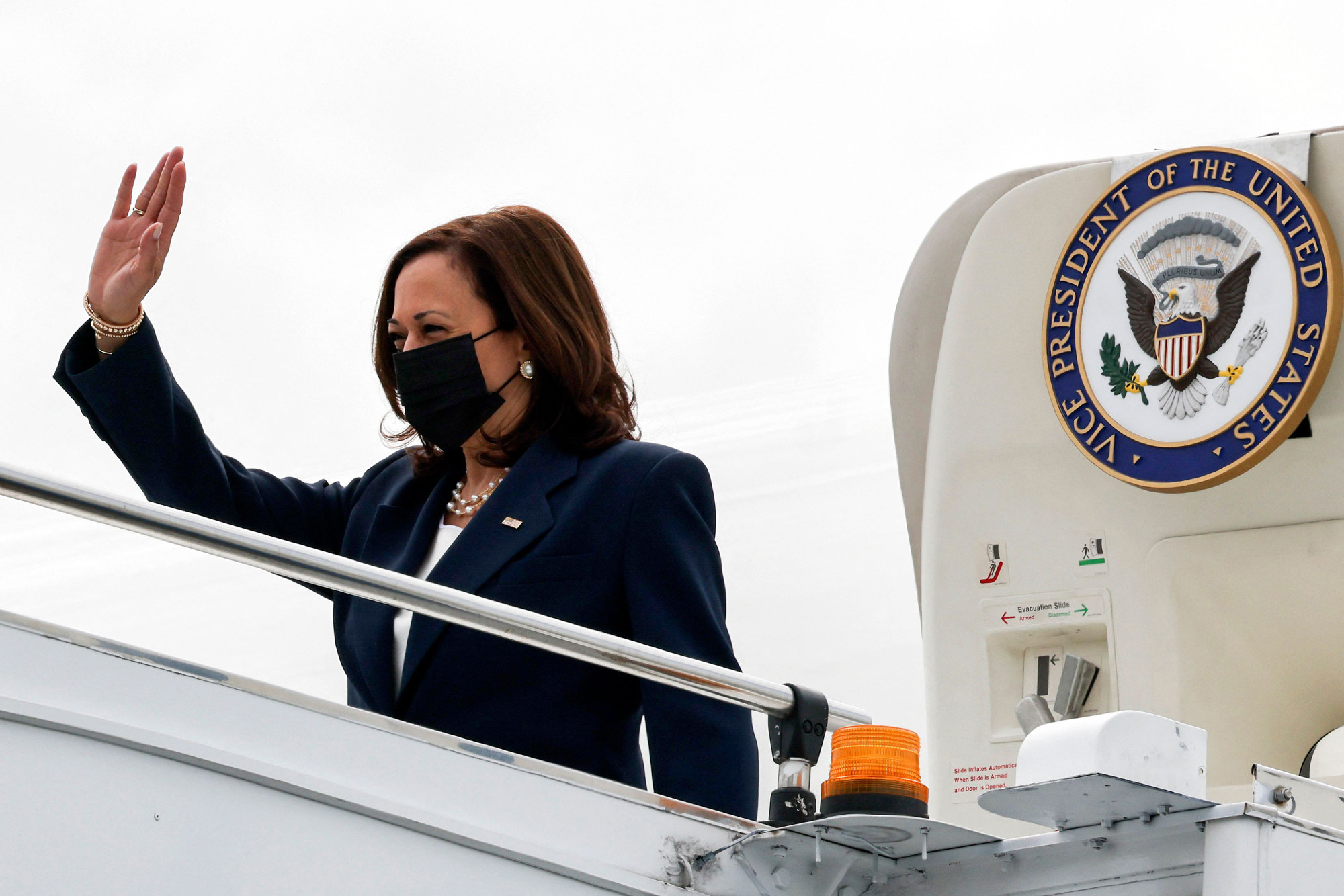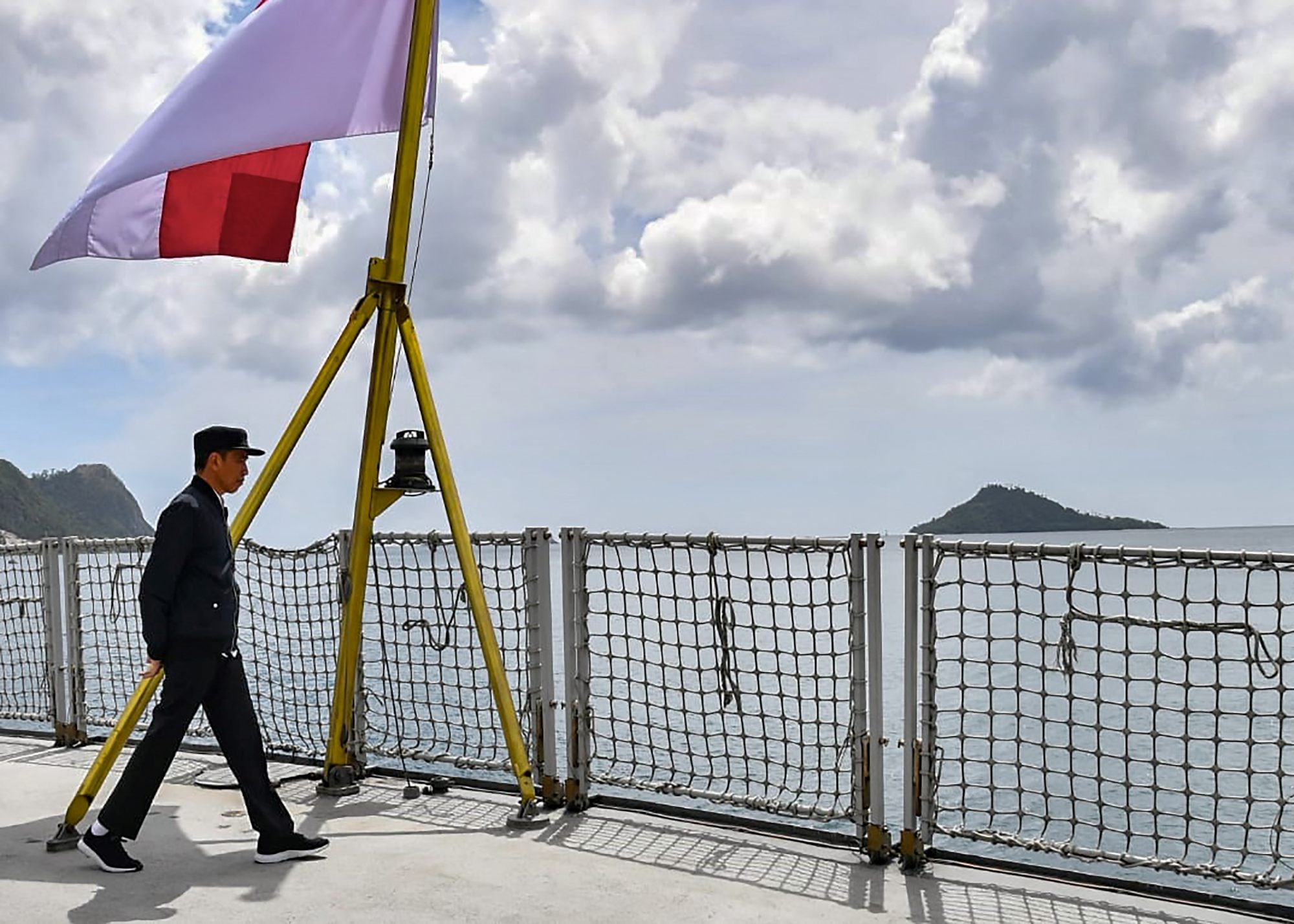From The South China Morning Post
By Account page.

![]()
Melissa Stevens
Digital Editor
- A meeting between high-level officials looks to have resuscitated the strategic partnership that was agreed on in 2015, only to be largely abandoned under Trump
- But perceived snubs by Biden administration officials visiting the region and the need to balance ties with China mean Jakarta is wary of becoming too close to Washington
Topic | Indonesia
Media www.rajawalisiber.com – When Indonesia’s foreign minister Retno Marsudi met her American counterpart Antony Blinken in Washington last month, she remarked that Jakarta had entered a “new era of bilateral relations” with the United States.
This indication of closer ties comes after Retno and Blinken launched a “strategic dialogue” between their countries that resuscitates the US-Indonesia strategic partnership that was agreed on in 2015, only to be largely abandoned during the Trump administration.
Since then, China has boosted its bilateral relationship with Indonesia, with both sides establishing a “platform for closer dialogue” in June to cooperate on five fronts, including the Belt and Road Initiative – Beijing’s ambitious infrastructure-building plan to boost global connectivity. Trade between Indonesia and China has grown and so have personal bonds between their political elite, which analysts say is the key to strong bilateral relations.
“The announcement of a strategic dialogue marks the revitalisation of US engagement with Southeast Asia in the post-Trump era, and a greater willingness by the Biden administration to re-engage with Southeast Asian states,” said Dr Greta Nabbs-Keller, senior specialist in defence research at Australia’s University of Queensland.
“However, it is significant that the new strategic dialogue and partnership which underpins it extends beyond security concerns to economic, health, climate change, education, energy, infrastructure, and cyber cooperation.”
The new US-Indonesia strategic dialogue kicked off during the largest ever Garuda Shield joint military exercises, which this year involved more than 4,500 personnel from both countries. The US has also donated 8 million vaccine doses and provided more than US$65 million in Covid-19-related assistance to the Southeast Asian nation, which in July was battered by a Delta-driven second wave.

But some analysts are sceptical that this really is a new era of ties. Yohanes Sulaiman, who lectures in the school of government at Jenderal Achmad Yani University in Bandung, Indonesia, said there should be concrete proof of a new strategic partnership between the countries before such a declaration was made.
“Generally speaking, the US and Indonesia relationship has been quite stable, [even though] it has had its ups and downs,” he said, adding that even under former president Donald Trump, Washington’s foreign policy was not unfriendly to Jakarta.
Bypassing Indonesia
Retno’s acclamation also came after the decision by senior Biden administration officials to bypass Indonesia on their recent visits to Southeast Asia, which was seen by many in the country as a disappointment. Vice-President Kamala Harris last month visited Singapore and Vietnam, and US Secretary of Defence Lloyd Austin in July made a trip to those countries as well as the Philippines.
Indonesia, which is seen as the de facto leader of the
, was overlooked on both occasions, a move The Jakarta Post – the country’s leading English-language newspaper – described in an editorial as a “snub”.
“I think the US commitment to building a better relationship with countries in the region cannot just be symbolised by [Harris’] visit. Prior to that, there had been some important meetings between Indonesian and US officials,” he said.
Suoneto said the US-Indonesia relationship had been stagnant in the four years under Trump, during which their leaders never meet in person, though Luhut Pandjaitan, President Joko Widodo’s top lieutenant, met the outgoing president in mid-November last year when an Indonesian delegation secured a US$750 million infrastructure financing commitment from the US.

The foreign policy analyst added that Indonesia could take advantage of the Biden administration’s vow to improve its commitment with Asia-Pacific countries, including Indonesia, “by boosting its cooperation with the US, mainly in trade and investment”.
“The continuation of the infrastructure commitment is really important to the bilateral relationship,” Suoneto said. “If there is a change of commitment [from the US], it would impact Indonesia’s perception of Washington.”
The volume of trade between the US and Indonesia last year came to more than US$27 billion, though this was dwarfed by the US$71.4 billion between the Southeast Asian nation and China, which is now its largest trade partner and second-largest foreign investor.
However, China’s ties with Indonesia are not all smooth sailing, with repeated skirmishes between the two sides in waters near the Jakarta-controlled Natuna Islands in recent years. Indonesia is a non-claimant in the South China Sea, but part of its exclusive economic zone in the North Natuna Sea falls within China’s so-called nine-dash line in the disputed waterway.
Indonesia is also increasingly concerned about budget overruns in building the Jakarta-Bandung high-speed rail, a flagship project under the belt and road plan, and has been seeking Beijing’s agreement in financing a greater share of construction costs.
Some analysts, such as Evan Laksmana, senior researcher at the Centre for Strategic and International Studies in Indonesia, questioned in a recent Foreign Policy column whether Jakarta was prepared to handle the changing order in which great powers vied for influence in the region.
“Indonesia has developed a vision of regional order fixated on maintaining stability and legitimacy at home, seeking strategic autonomy, and denying great powers hegemony over the region,” he wrote. “Although such a strategy of avoidance has served Jakarta well in the past, it is no longer suited to an era of renewed great-power competition in the Indo-Pacific.”

Afghanistan concerns
Yohanes of Jenderal Achmad Yani University said Indonesia needed to define its strategic interests before deciding on its next move should the regional order change.
“Up to this day I have never heard of Indonesia’s clear, strategic interests. It always talks about denying the domination of a particular great power in the region,” he said. “Indonesia knows what it does not want but it does not know what it wants.”
Jakarta was also wary that if it was overly reliant on the US, Washington could impose sanctions on the country if it deemed Indonesia to have committed human rights violations, Yohanes said, citing the example of former president Bill Clinton’s suspension of US military ties with Jakarta in 1999 and his threat to end economic aid unless the violence in East Timor was stopped. East Timor became a sovereign nation in 2002.
“Indonesia is also cautious of aligning with China, which harbours a territorial ambition in the South China Sea that is destabilising Southeast Asia, so Indonesia chooses to be neutral,” he said.
Nabbs-Keller from the University of Queensland said Jakarta’s perception of Washington as a partner, particularly from a military perspective, might be hurt by the chaotic withdrawal of American troops from Afghanistan.

“Domestically, the success of the Taliban risks reinvigorating Islamist movements in Indonesia, Malaysia and the Philippines, raising the prospect of increased terrorist attacks throughout the archipelago,” she said.
The situation in Afghanistan, of Muslims’ lives being uprooted as “a consequence of Western strategic withdrawal”, also might negatively impact the image of the US in Indonesia, the world’s most populous Muslim-majority nation, Nabbs-Keller said.
Yohanes said to assuage this concern, the US needed to tell its allies and partners in Southeast Asia that it was sticking to its commitments in the region, including to maintain stability.
The US departure from Afghanistan also sent a signal that it had put “a greater policy focus on the Indo-Pacific”, Nabbs-Keller said.
“This means added policy attention on Southeast Asian states by Washington, but it also means strategic tensions will likely escalate as Washington and its allies bring greater pressure to bear on Beijing.”


